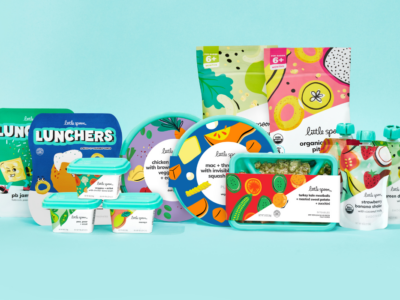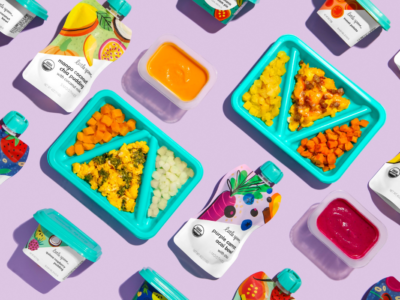There’s a lot of buzz on the internet about oils. They are probably one of the most talked about and yet most misunderstood nutrition topics in the health community. There is a dizzying amount of oils in the grocery store and the question becomes…”What oils are the healthiest and which oils should we omit? What oils are the best to cook with and why?”
FATS 101
Let’s back-up for a minute and talk about fats. First, oils bring fat to the table, and fat, believe it or not, can be a very good thing. We need fat, especially little mini mes as it keeps them full, fuels their brains and energy, and helps their growing bodies absorb vital nutrients + vitamins. Fat from oil is a great source, but not all oils are the same.
My favorite oils:
Olive Oil: Olive oil is full of protective antioxidants that can help promote brain development and may help in relieving constipation. Itl is found to be the most stable and safe for cooking—you can find it in some of Little Spoon’s Plates like Spinach and Cheese Ravioli or Cheesy Black Bean Pupusas. Choose extra virgin olive oil for the highest amount of antioxidants and beneficial compounds. You can cook with it, use it in dressing/marinades or simply drizzle it on top of any food you like!
Avocado Oil: Rich in vitamin E that helps build immunity, this oil can also help aid in the absorption of important antioxidants from a variety of fruits and vegetables! You can try it in Little Spoon’s Kale White Bean Pear Basil Quinoa Avocado Oil Babyblend. It is especially great for high heat cooking since it has a high smoke point and won’t turn rancid at high temperatures.
Coconut Oil: Second to olive oil, coconut oil is found to be a safe and stable oil to cook with. It doesn’t contain nearly as many antioxidants as extra virgin olive oil, however, it is rich in MCTs that can help provide a quick boost of energy. Coconut oil is also antibacterial and can help fight off certain bacteria and viruses. This is a good oil to use when using Asian-inspired flavors for dishes like curry or stir frys. Additionally, coconut oil can be a dairy-free/plant-based alternative to butter and gives a boost to tropical flavors, like a Pitaya Pineapple Spinach Banana Coconut Oil Babyblend or in baked goods that many little ones love!
Flaxseed Oil: Rich in omega-3s, this oil is best consumed raw. Try substituting half of your usual olive oil dressing with flaxseed oil for a nutritional boost, or your kids will love it with crackers dipped in pesto or drizzled over veggie sticks. Plus it’s great in smoothies and yogurt.
Ghee (clarified butter): While not technically an oil, ghee is a great fat to cook with, especially high-heat cooking. It contains vitamins A, D and E, which benefits everything from kids’ vision to immunity, and brain health. Try using the grass-fed variety high in vitamin K, which can help boost the absorption of calcium in the body and help strengthen growing bones. Additionally, during the clarifying process, the casein and lactose are removed, making ghee a good alternative to butter for those that are sensitive to dairy.
Some oils to use in moderation:
For a long time, we were conditioned to think that any seed oil is fine, I mean how can a sunflower not be 100% healthy? The thing is, so many oils are highly processed, come from pretty yucky sources and quite frankly are not something you’d want to give to your little one in large quantities. It’s a spectrum, there is no black and white and there is a ton of gray so let me try to help you make sense of it all.
Soybean Oil: Although this is one of the most widely consumed oils in the U.S., it’s not the best choice. Turn to options above when adding oils into your babe’s diet for a more well-rounded, nutritionally valuable option.
Seed Oils like sunflower, safflower, canola (rapeseed) and corn oil: These oils are often found in foods we all eat and are okay in moderation, but when deciding what oil to primarily include in your child’s diet, there are better choices.
Margarine: Made from vegetable oils, margarine is considered a low-fat alternative to butter. However, margarine is hydrogenated and contains trans-fats, which have been associated with a greater risk of serious health issues. Opt for a different oil option or grass-fed ghee instead.



